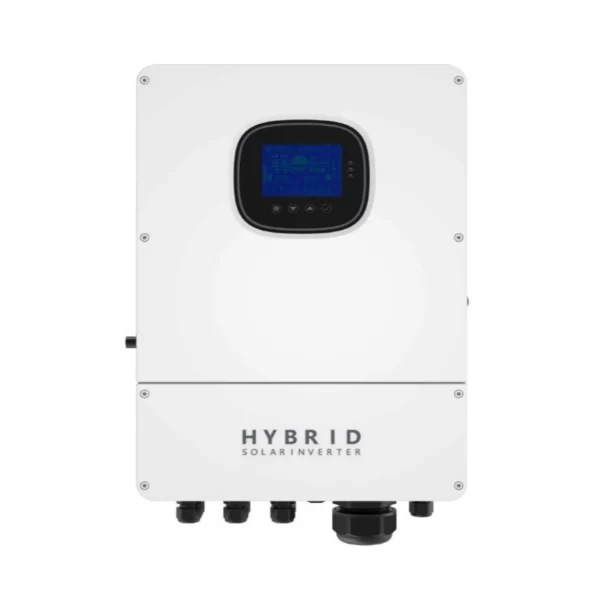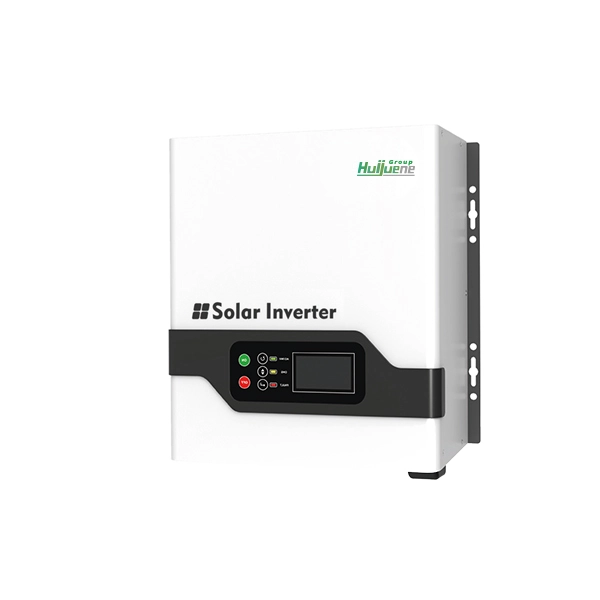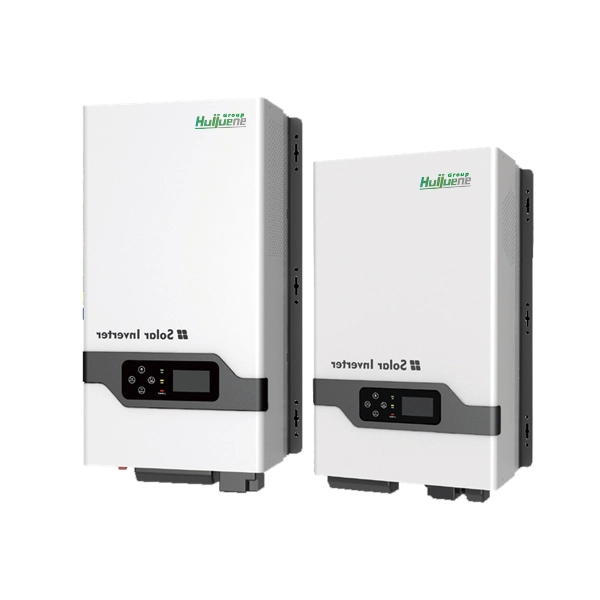Solar power inverters are some of the most important parts of a solar power installation. This is because their work is to invert the DC power generated by the solar installation into 220V 50Hz AC power.
Our solar inverters are making significant contributions to renewable energy adoption in several African nations. In South Africa, they're integral to both residential and commercial solar installations, supporting the country's push for cleaner energy. Pakistan's growing solar market relies on our inverters for efficient power conversion in diverse environmental conditions. In Nigeria, our solar inverters are helping to address energy shortages, powering homes and businesses with the country\'s abundant sunlight.
You can feel free to contact our sales staff in case of any questions to check the prices of the product and more information using our online customer service on the right or submitting a form request. We are always at your service for free advice and can give our services according to your needs.
Our solar inverters have been trusted by customers worldwide, from the sunny plains of South Africa to the bustling cities of Pakistan and the growing renewable energy markets of Nigeria.
All You Should Know About Solar Inverters
Most homeowners have no idea about solar panel inverters: what they are, what they do, and how they affect the efficiency of your system. Herein, at Huijue, we introduce a comprehensive overview regarding solar panel inverters and how they help improve the system's efficiency. We will discuss some of the many different types of solar inverters available and some of the benefits and common problems associated with solar panel inverters. With this information, you will be in a better position to make knowledgeable solar inverter decisions. Now, we will begin to unravel the mystery of these solar inverters.
What is a solar inverter?
The main task of the solar inverter is to convert DC power from the photovoltaic panels into sinusoidal AC power.They are suitable for a vaniety of instalationenvironments, induding isolated instalations where 12v,24v,or 48v input voltage is applied, and grid-connected systems.n the case of grid-tied (conected to the grid)installations, the input voltage is usually much higher to achieve higher power efficiency.
Types of photovoltaic inverters
On this site you will find 6 types of solar inverters offered by Huijue:
- Hybrid Inverter
- Grid Tie Inverter
- Off Grid Inverter
- Micro Inverter
- Water Pump Inverter
- Battery Inverter
What is the nature of a PV panel inverter?
- Power: The maximum continuous power in watts or vot-amperes thatthe inverter oers, depending on thetyoe ot eowioment since each tvpe of eouloment neds amaximum output power, usually twice the nominal one and adapted to peak consumption during its start-up.
- For the resistive load, which may include an incandescent lamp and oven,whose voltage and current are in phase,the power calculation is done in watt;
- For inductive or capactive devices,such as motors and fuorescent lamps,respectively,voltage and cuent phases difer; hence, volt-amperes are used to calculate thepower;
- MAXIMUM POWER: Maximum available output power available is normally double the nominal power. It will last only for a few seconds to respond to the peak consumption of a load such as an engine at start-up.
- Temperature: they have a set nominal power for particular conditions, usually 25°C. Once the surrounding temperature rises, it becomes difficult to dissipate the heat generated by the Joule effect of the inverter itself of the solar panel and, therefore, reduces the power delivery capability of the inverter.
- Voltage: the voltage of an inverter of a photovoltaic panel defines the voltage of the battery bank it must be connected to in order to work. Inverts of 12V solar panel normally is low power and usually up to about 2,000 W; 24V inverters are intermediate power between 2,000 W and 3,000 W; and 48V between 4,000 W and 10,000 W. This is due to energy conversion from DC to AC and also due to the strength of the line which passes through it from batteries to the inverter.
- Standby power: This is the consumption of the inverter even when there is no consumption at the output. The higher the power of the inverter, the higher will be the consumption of standby power.
Advantage of Sun Inverter
- Efficient Energy Conversion: Solar inverters are so designed that they convert DC power from PV panels to AC power with the least loss. In this way, it maximizes resources regarding solar energy and enhances general efficiency.
- Ruggedness: It is designed for various types of harsh outdoor environments and can operate stably under extremely cold or hot conditions to ensure long-term, reliable power output.
- Low Maintenance Costs: The design of the inverter is for reliability and almost doesn't require frequent maintenance. This saves maintenance costs in the later stages and provides the user with time-worn value assurance.
- Wide adaptability: the inverter works under different lights and within a wide voltage range, ensuring stable performance in various photovoltaic systems. It is suitable for applications requiring different powers.
Selection of a Solar Inverter and Price of the Inverter
Keep in mind that the price for an inverter will vary depending on its size, quality, brand, and technical features. It is recommended to choose the right model depending on the application. The general idea is that the models for domestic use are inexpensive, while the industrial ones will obviously be more expensive. By keeping this in mind, you will be better equipped to go out and make an informed solar inverter decision!
Installation Tips for Sun Power Inverter
- Installation Site: First of all, select an appropriate installation site that must be free of debris and other obstructions to ensure correct functioning.
- Installation and Wiring: The proper installation of a solar inverter is very important. Secure the wiring of this electrical device and insulate it properly to avoid any electrical malfunction that may result in the safety of equipment.
- Compliancy with Regulations: During grid tie, there has to be compliance with the local codes and regulations. This will be an assurance that equipment does not violate any law and also possibly create legal problems.
- Insulation and Grounding of Wiring: All wiring must be properly insulated and grounded. This prevents electrical short circuits and helps guarantee the safety of your equipment.
- The inverter itself: Before the inverter is switched on, ensure proper connectivity to the grid after ensuring the system checker has cleared it. This is to ensure that the inverter will operate effectively and provide good quality, reliable power.
FAQs Associated with Solar Panel Inverters
There are several types of issues that occur during the usage of the inverter, which includes:
- Overheating: High temperatures can result in the shutdown of the inverter, thereby causing a power outage.
- Corrosion: Corrosion in humid environments may result in circuit board failure.
- Incorrect wiring: Improper wiring can lead to power outage, fire, and so on.
- Poor system design: A wrong design can be an invitation to energy losses and reduced efficiency.


